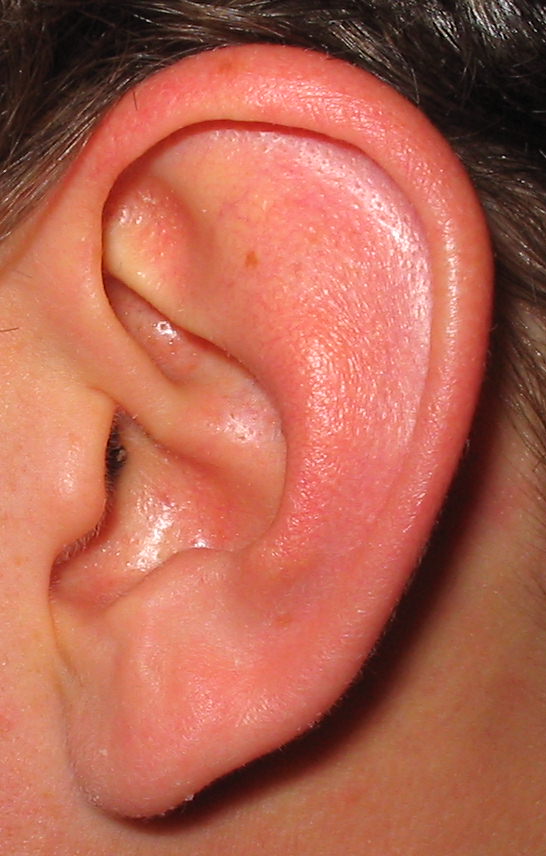 Ear disease prevention, especially among children, is important to prevent hearing impairment or even worse, deafness. Age is a risk factor for common ear infections, and children bear the greatest risk due to their generally weak immunity. Fortunately, you can take various steps to prevent common ear ailments in your family. Here are seven great habits to avoid ear infections:
Ear disease prevention, especially among children, is important to prevent hearing impairment or even worse, deafness. Age is a risk factor for common ear infections, and children bear the greatest risk due to their generally weak immunity. Fortunately, you can take various steps to prevent common ear ailments in your family. Here are seven great habits to avoid ear infections:
Practice Good Hygiene
Colds and flu are prime causes of ear illnesses. Bacterial and viral strains responsible for respiratory conditions such as pneumonia and influenza are also to blame for general ear infections. For instance, “Streptococcus pneumoniae” and “Haemophilus influenzae” are the major bugs that cause acute otitis media (AOM), a common ear infection. These bugs spread from one person to another rapidly through contact. Therefore, it is crucial to wash your hands anytime you come into contact with contaminants. Wash hands with soap, or hand cleansers. alcohol-based cleansers are more effective at eliminating common bugs than ordinary soaps are. Wipe surfaces using cloths soaked in bleach to kill harmful microbes.
Eat Healthy Meals
Healthy eating habits are essential for preventing common ear diseases. Otitis media with effusion (OME), for example, results from excessive fluid buildup in the middle ear. Fluid buildup comes about due to colds and flu. Eating nutritious foods helps to boost immunity and prevent these illnesses. Always include fresh vegetables, fruits, and, and healthy drinks in your diet. These foods pack sufficient vitamins and antioxidants to enrich your immune system and prevent ear infections from occurring.
Breastfeeding Infants
While OAM infections are widespread among infants and toddlers, a mother’s milk can help to prevent this infection. This is mainly because breast milk packs immune factors essential for preventing ear, nose, and throat infections. According to the American Academy of pediatrics, breastfeeding a baby for the first six months helps to prevent respiratory conditions that affect the ears. Additionally, new mothers should nurse their babies in the recommended way to allow the Eustachian tubes to function well. If you feed the baby through a bottle, hold him/her the same way you would while breastfeeding.
Avoid Cigarette Smoke
Various ongoing studies suggest a linkage between cigarette smoke and increased ear infections among children. Children whose parents smoke cigarettes are more likely to develop OME due to irritating chemicals present in the smoke. Even second-hand fumes from cigarettes can irritate kid’s weak immune systems.
Get Flu Shots and Vaccines
Viruses are the culprits behind many ear infections. For instance, rhinovirus contributes to OME by causing swelling and blocking of the inner ear passages. This leads to fluid buildup among people with colds or flu. The upsurge in fluid becomes a breeding place for bacteria leading to subsequent ear infections. Respiratory synctial virus (RSV), and HIV are other viruses responsible for ear infections among children and adults. According to the US Centers for Disease Control and Prevention (CDC), an annual influenza vaccine for children over six months old is crucial to avoid ear ailments. Studies show that children who receive flu vaccinations experience fewer ear illnesses during flu seasons than unvaccinated ones.
Avoid Pacifiers
Pacifiers increase saliva production among babies. Swallowing of this saliva can aid bacteria to travel up the Eustachian tubes to the middle ear leading to infections. You should wean your baby from pacifiers from three to six months of age.
Control Interactions
Control the number of people who meet your child every day. A report in the journal of Pediatrics states that sixty percent of babies in daycare suffer from at least six respiratory infections annually. On the other hand, only twenty-nine percent of babies who are cared for at home experience such illnesses.
All said, ear infections are recurrent among children than adults. Therefore, it is imperative to take the necessary preventive measures to avoid such cases. The seven methods discussed above are helpful for ear disease prevention. If you have ear infections, you should seek medical help as soon as possible.
